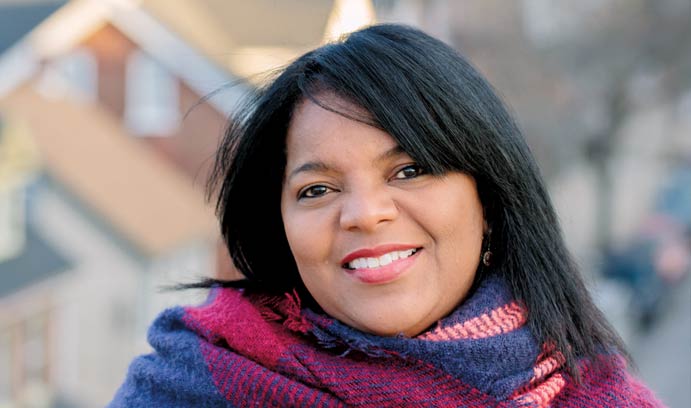Stephanie Powell Watts' 'No One Is Coming to Save Us': A Recasting of ‘The Great Gatsby’

Stephanie Powell Watts says she's thrilled with her novel's success but doesn't dwell on it. Photo: Christa Neu
In early 2014, as Stephanie Powell Watts received accolades for her first book, a collection of short stories titled We Are Taking Only What We Need, she expressed being “a little bit nervous” about the novel she was writing, her first.
“Obviously no matter what you write, you want it to be good,” she told the Bulletin at the time, “but I have to say, I really, really want this to be good.
Watts need not have worried.
The novel, No One Is Coming to Save Us, released earlier this year, was featured on the covers of both Kirkus Review and Bookpage. It has received high praise from Vanity Fair, Time, The Washington Post, O, The Oprah Magazine, The New York Times Book Review and Publishers Weekly. And it was one of 16 New York Times Summer Reads, among many other accolades. Most recently, actress Sarah Jessica Parker, honorary chair of the American Library Association’s Book Club Central, announced the novel as the club’s inaugural fiction selection. It recasts The Great Gatsby in a contemporary North Carolina town in decline and tells the story of an extended African-American family whose members struggle to reconcile their realities with the lives they hoped to have.
Watts, an associate professor of English, says she’s thrilled with the novel’s success but doesn’t dwell much on it. She’s already turned her attention to her next novel. She hopes, however, that her success inspires writers who might “not come from a certain pedigree and have had struggles along the way,” as she did.
Watt’s first book earned her several prestigious awards, including a Whiting Award, a Pushcart Prize, the Ernest J. Gaines Award for Literary Excellence, the Southern Women’s Writers Award for Emerging Writer of the Year, and a spot as a finalist for the PEN/Hemingway Award.
“Writing is one of those kinds of things that feel rarified, and one can feel as if it’s for somebody else,” Watts says. “I don’t have a background of privilege or money, but everyone has incredible stories, and we need a multitude of voices in the American conversation.”
Posted on:


